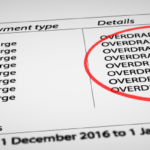Anyone can purchase shares, and investing in the share market can develop your wealth better than any other investment. Understanding how the stock market works, researching companies, assessing the risk and using a good broker will help you purchase shares wisely and develop a robust, diversified share portfolio.

https://www.marketingcloud.com/blog/digital-advertising-trends-2016/
Herewith some suggestion on how to get started in the share market as well as what you need to purchase shares and build up a solid, diversified share portfolio. It is advisable to avoid picking stocks at random. It is better to find a good broker, do proper research and purchase shares that will grow your wealth for you.
1. Preparing the initial investment. In this step, the first requirement is some spare money. In general you don’t need much to get started. You can invest any amount in the sharemarket, however because of the buying costs, the more money you have to invest, the cheaper the brokerage fees.
2. Finding a trustworthy broker is next. Brokers work for firms that simply take your order and enter it in the market, or firms that take you on as a client and give advice, research and financial planning to help with your investments. The previous is cheaper, but if you consider you’ll need advice, the dearer fees of the last one may be money well spent.
3.Deciding between a trader or a long-term investor. As an investor (meaning a long-term buyer of shares), you’re in a safer position for share investment and more likely to succeed. Traders (meaning professionals and committed semi-professionals who buy and sell shares daily) are rightful investors in the share market, but this type of activity is only for those who know what they’re doing.
4.Choosing stocks is next. For a long-term investor, 8 to 12 well-chosen stocks will give you a portfolio with far less speculative risk than just 2 or 3 shares. What you buy depends on the return you’re hoping to make, the risks you’re prepared to run, the time frame you’re prepared to invest for, and whether you’ll need to take the money out before then.
5. Research the companies whose shares you buy. Find out what the companies do and how they’ll make money for you. In fact, checking important company fundamentals before investing in a stock is necessary. Before you buy stocks, you have to do a little research on the companies you’re thinking of investing in. Pay attention to the following key components when you examine at a company’s main financial statements (the income statement and the balance sheet):
- Earnings: This number should be at least 10 percent higher than the year before.
- Sales: This number should be higher than the year before.
- Debt: This number should be lower than or about the same as the year before. It should also be lower than the company’s assets.
- Equity: This number should be higher than the year before.
6.Avoid look for shortcuts to investing success. Unfortunately, you won’t find a guru or blackbox software tool that can predict which shares will rise and which will fall. It is better that you make a good analysis when investing on stocks and there are financial measures to consider before Investing in a stock that can help you to make right decision. When you’re thinking of buying stock in a company, before you invest your hard-earned money in hopes of a profitable return, check out some financial ratios that can help indicate whether the company is on sound financial footing. Here are key measures to consider:
- Price-to-earnings ratio (P/E): For large cap stocks, the ratio should be under 20. For all stocks (including growth, small cap, and speculative issues), it shouldn’t exceed 40.
- Price-to-sales ratio (PSR): The PSR should be as close to 1 as possible.
- Return on equity (ROE): ROE should be going up by at least 10 percent per year.
- Earnings growth: Earnings should be at least 10 percent higher than the year before. This rate should be maintained over several years.
- Debt-to-asset ratio: Debt should be half of assets or less.






